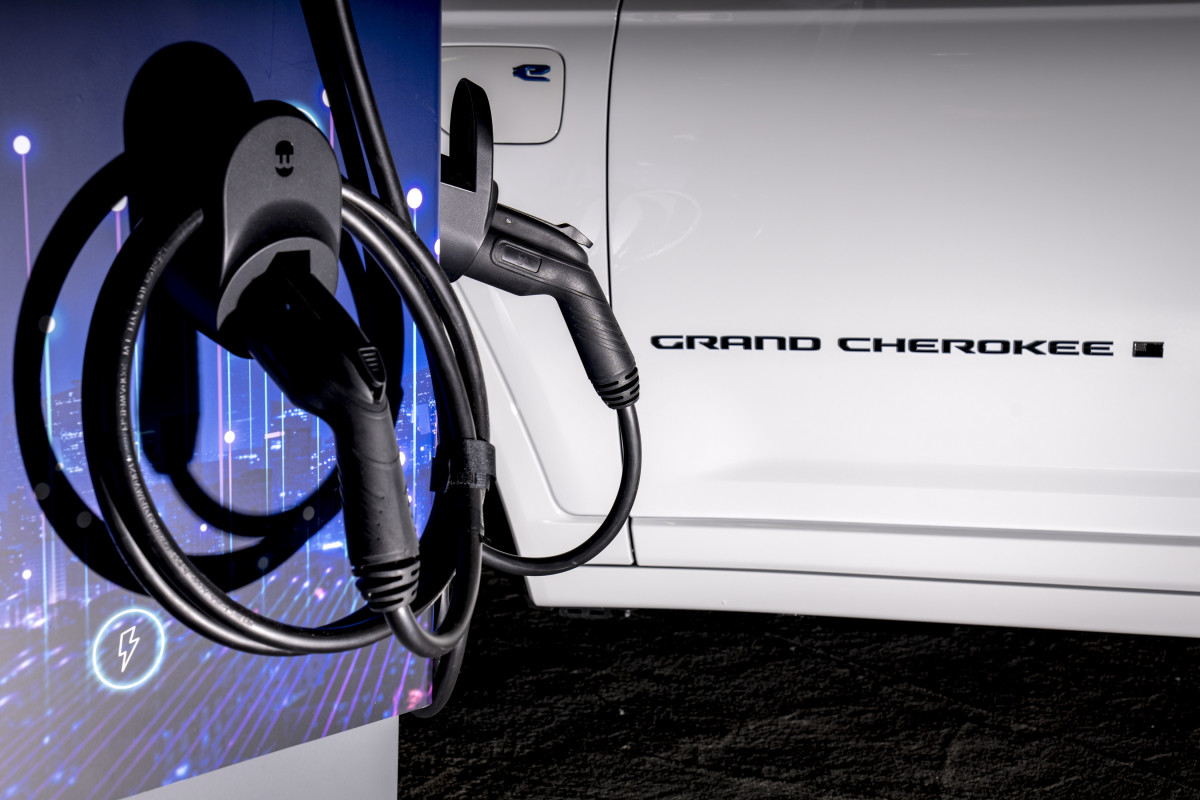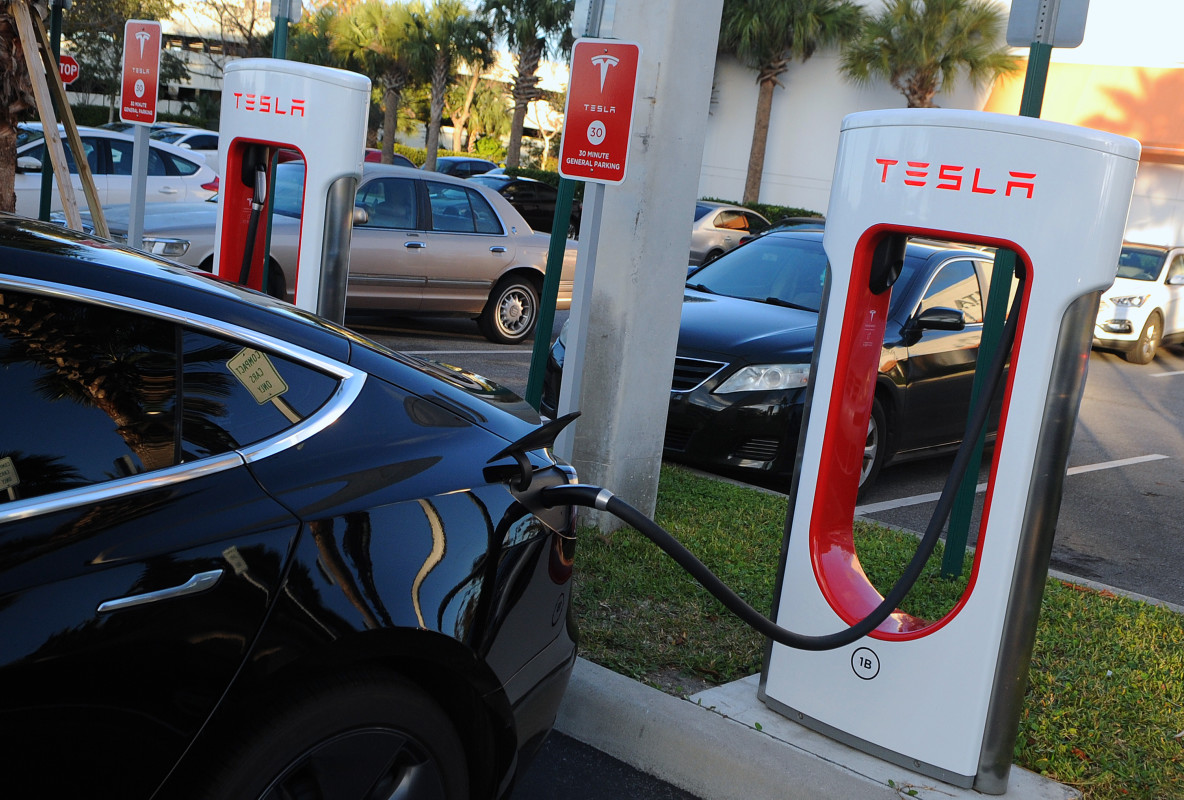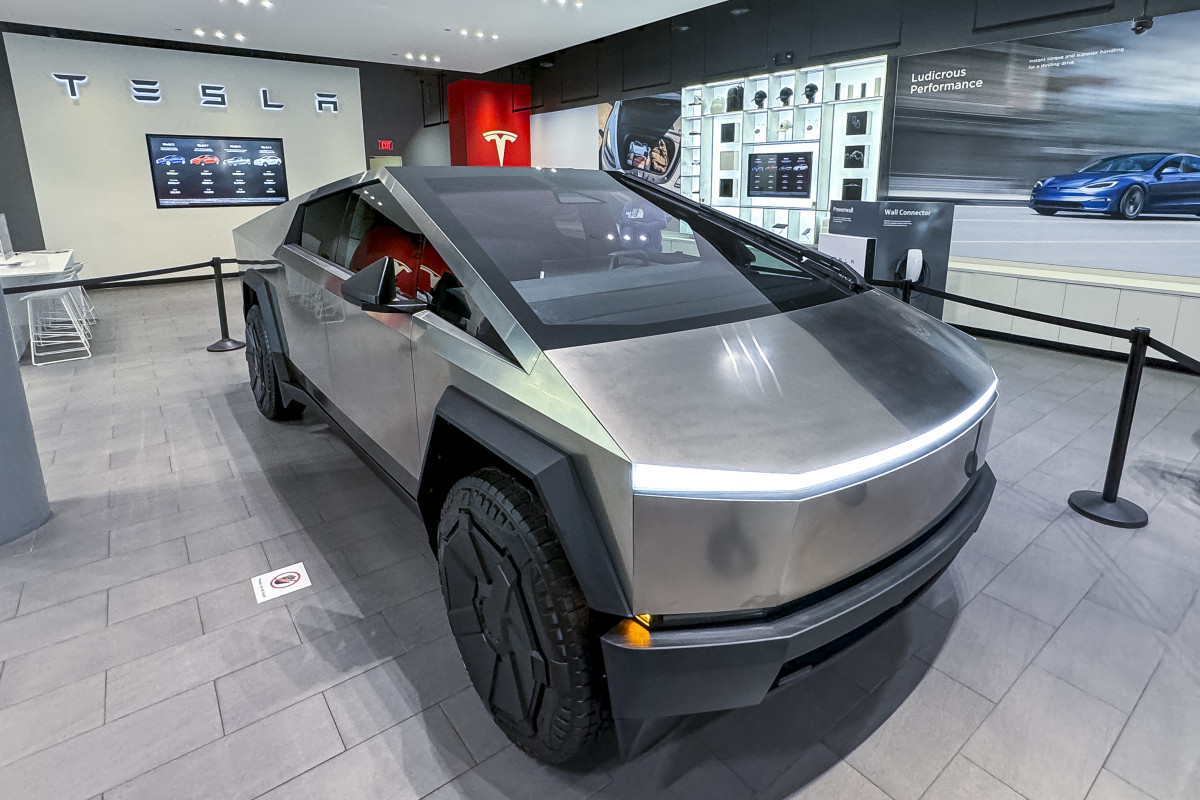
Electric vehicles, according to a new report from Consumer Reports, have 79% more problems than their internal combustion engine (ICE) counterparts.
Plug-in hybrids, the report found, have nearly 150% more problems than ICE vehicles, while hybrids have 26% fewer problems.
The findings come as automakers and dealerships are beginning to take notice — despite both company and government incentives — of a mass consumer base that seems unwilling to make the transition to electrification.
Related: Thousands of car dealers have a potent warning for electric vehicle enthusiasts
The report, based on a survey of Consumer Reports' members, included data from more than 330,000 vehicles made between 2000 and 2023.
Some of the most common problems EV drivers noted, according to Consumer Reports, had to do with issues around charging, batteries and electric drive motors.
Jake Fisher, senior director of auto testing at Consumer Reports, said in a statement that as companies who are relatively new to building EVs churn out more of the vehicles, "it's not surprising that they're having growing pains and need some time to work out the bugs."
Teslas (TSLA) -), due to the company's experience in dealing with EVs, are "generally reliable," though the company, according to Consumer Reports, "continues to struggle with the build quality of its vehicles."
Hybrid vehicles, according to the report, are the real hero — with less technology than their plug-in hybrid or fully electric counterparts, these vehicles have fewer things that can go wrong.
Plug-in hybrids, according to Fisher, are "sort of like an EV and a conventional car rolled into one, so by their nature they have more things than can go wrong with them."
There are, however, a few exceptions to that rule — the Toyota Rav4 Prime plug-in hybrid, Fisher said, is one of the most reliable models in this year's Consumer Reports survey.
Related: Tesla bulls say electric vehicle demand is soaring. Here's what's really happening
Car dealers: Consumer isn't ready for electrification
The report comes just a few days after a coalition of nearly 4,000 car dealerships across the country sent a letter to President Biden, urging his administration to tap the brakes on proposed regulations that would require nearly 66% of all new U.S. passenger vehicles to be fully electric by 2032.
Price cuts from carmakers and tax incentives from both federal and state governments, they said, are not enough to override the concerns the consumer has over switching to EVs.
One of these pressure points, according to Mary Rice, the Dealer Principal of Toyota of Greensboro, NC, is that there has been a steep depreciation in the value both of new and used EVs.
A reduction in value, Rice told TheStreet, is an indication that the "supply is too high for the demand."
Rice has long waiting lists for hybrids, while customers won't even test drive some electric models.
Rice said that her customers would rather wait for a hybrid than purchase an electric vehicle.
Customers, Rice said, "aren't being motivated by cash discounts."
Rice has noticed an overwhelming concern among customers around a lack of charging infrastructure and the range anxiety that goes hand-in-hand with that, in addition to price.
But as a dealer, she said that the long-term affordability of such cars also poses a concern: "The purchase price is just the beginning of the transaction."

The cost of replacing a battery, either when it goes bad or in the event of an accident, is likely weighing on people's minds, Rice said.
U.S. News and World Report said in August that most EV batteries will last around 10 years or 100,000 miles. A replacement battery, according to JD Power, could cost between $4,000 and $20,000.
Rice said that people will eventually become more comfortable with the electric transition, and that the cars are perfect for certain customers, just not for everybody quite yet.
"I think the hard part is saying this is the only choice or this is what 70% or 60% of you will drive," she said. "That's tough for people. I don't think 60% of people in the US have the same circumstances where you could mass apply their sole transportation source to one criteria."
Related: Mustang Mach-E probe reveals electric vehicle adoption issues
Dealership owner: "I think we need to slow down"
Rick Germain, the president of Germain Automotive Partnership, which operates 17 stores across Ohio, Florida and Michigan, told TheStreet that despite his efforts to promote EVs, the vehicles represent only 2% of what his dealerships sell.
Customers, he said, either can't afford EVs or have a non-EV-compatible living situation.
Germain said that the bulk of his customers live in apartment buildings, where they don't have access to garages where they could charge an EV overnight.
And the current infrastructure, though growing, can't yet support fast charging for everyone.
"We're doing everything to put a car deal together," Germain said, but better pricing is doing little to move consumers who are just not ready for the transition.
"I don't see things changing enough in the next nine years," Germain said. "We're excited about EVs. But I think we need to slow down, wait for infrastructure to get better, wait for technology to get better, wait for the cost to come down."
Related: Former Ford CEO Has a Blunt Warning for the EV Industry
Auto dealer: "Consumers are not embracing this technology"
Bill Golling of Golling Auto Group told TheStreet that, between such issues of affordability, infrastructure and range, he doesn't know how the market would ever get to a place of 70%, or even 50%, adoption.
"My customers are not embracing this technology," he said. "If you look at day supply, generally electric cars are twice that of gas cars or more."
The minerals necessary to create a single EV, Golling said, would save 3.7 tons of carbon. The same minerals could instead be used to make six plug-in hybrids, which would save 20 tons of carbon; those same minerals could be also used to make 90 hybrids, which would save 138 tons of carbon.
Toyota, a staunch supporter of the middle line presented by hybrids, said in May that the distribution of raw minerals to create 90 hybrids would reduce 37 times more carbon than a single fully-electric EV.
"Are we here to lower carbon are we here to sell battery electric cars?" Golling said.

The mass adoption of EVs, according to Golling, is reliant on the industry satisfactorily addressing those three points of affordability, charging infrastructure and range.
"It should be a more rationed approach," he said. "Give the time for the network to develop."
This waning of consumer sentiment, something supported by recent data from S&P Global Mobility, comes as legacy automakers are beginning to slow down their own EV plans. General Motors (GM) -) postponed its EV lineup in an effort to enhance affordability, Ford (F) -) postponed $12 billion in EV investments and even Hertz, citing issues with value depreciation, is slowing the electrification of its fleets.
But even with consumer sentiment crumbling around affordability issues, range anxiety and a lack of infrastructure to support the transition, EV adoption is continuing to grow; a record 7.9% of total global car sales in the third quarter were made up of EVs.
"Is it the right direction? Yes. Is that the right thing to save carbon? Yes," Golling said. "But it's just the speed at which they want it to be done — I just don't think it can be done."
Contact Ian with tips via email, ian.krietzberg@thearenagroup.net, or Signal 732-804-1223.
Get exclusive access to portfolio managers’ stock picks and proven investing strategies with Real Money Pro. Get started now.







